#AEO Certification in india
Explore tagged Tumblr posts
Text

The Authorized Economic Operator (AEO) program is a global initiative that aims to enhance international trade security and facilitate the movement of legitimate goods across borders. It is a voluntary program that allows businesses engaged in international trade to obtain a certification that signifies their compliance with customs regulations and security standards.
Read our comprehensive guide on the Authorised Economic Operator (AEO) program which incentivizes import/export/trading companies with such cost and time savings on Customs and how your business can benefit from it.
Read more here:- https://www.mbgcorp.com/in/aeo-programme/
0 notes
Text

The Authorized Economic Operator (AEO) program is a global initiative that aims to enhance international trade security and facilitate the movement of legitimate goods across borders. It is a voluntary program that allows businesses engaged in international trade to obtain a certification that signifies their compliance with customs regulations and security standards.
Read our comprehensive guide on the Authorised Economic Operator (AEO) program which incentivizes import/export/trading companies with such cost and time savings on Customs and how your business can benefit from it.
Read more here:- https://www.mbgcorp.com/in/aeo-programme/
0 notes
Text
How to Choose the Right Logistics Service in India
The logistics sector in India is the backbone of the economy, facilitating the seamless movement of goods and services across the nation. With the rapid growth of e-commerce, manufacturing, and retail sectors, the demand for efficient logistics services has skyrocketed. Whether you are a small business owner or a large corporation, selecting the right logistics partner is crucial for operational efficiency and customer satisfaction. This guide provides a comprehensive roadmap for choosing the best logistics service in India.
Understanding the Indian Logistics Landscape
India's logistics industry is vast and diverse, encompassing transportation, warehousing, freight forwarding, and supply chain management. Key factors influencing the sector include:
Geographical Diversity: India’s varied terrain, from mountains to plains, requires adaptable logistics solutions.
Government Policies: Initiatives like the Goods and Services Tax (GST) and the Make in India campaign have streamlined operations but also introduced compliance requirements.
Technological Integration: Digital platforms and automation are transforming the logistics industry, offering better tracking and efficiency.
Key Factors to Consider When Choosing a Logistics Service
1. Type of Logistics Service Required
Understanding your specific logistics needs is the first step:
Transportation Services: For businesses focusing on the movement of goods.
Warehousing Solutions: Ideal for storing inventory before distribution.
Supply Chain Management: Comprehensive solutions for managing the flow of goods from supplier to customer.
Freight Forwarding: For international shipping and customs clearance.
Evaluate whether the logistics provider specializes in your required service and industry.
2. Experience and Expertise
A logistics company with a proven track record in your industry can better understand your unique challenges. Check for:
Years of experience.
Client testimonials and case studies.
Awards or certifications indicating industry recognition.
3. Coverage and Network
India’s size and diversity demand a logistics provider with a robust network. Ensure the provider offers:
Pan-India coverage.
Regional expertise in specific states or areas.
International shipping capabilities if required.
4. Technology and Tracking
Modern logistics relies heavily on technology for efficiency and transparency. Look for:
Real-time tracking capabilities.
Integration with your existing systems (ERP, CRM, etc.).
Advanced analytics for predictive insights.
5. Cost-Effectiveness
While cost is a significant factor, it should not compromise quality. Consider:
Transparent pricing models.
Value-added services like packaging, insurance, or expedited shipping.
Volume-based discounts or contracts for long-term partnerships.
6. Compliance and Certifications
Ensure the logistics provider adheres to regulatory standards, including:
GST compliance.
Safety certifications for hazardous goods.
International certifications for export/import services, like ISO or AEO.
7. Customer Service and Communication
Effective communication is key to resolving issues and ensuring smooth operations. Assess:
Availability of a dedicated account manager.
Responsiveness to queries and complaints.
Multilingual support if operating in diverse regions.
8. Scalability and Flexibility
Choose a logistics partner capable of scaling their services as your business grows. Evaluate:
Ability to handle increased volumes during peak seasons.
Flexibility to adapt to changes in your supply chain.
9. Sustainability Practices
With growing environmental concerns, many businesses prioritize eco-friendly practices. Check for:
Use of electric vehicles or fuel-efficient fleets.
Green warehousing solutions.
Waste management and recycling initiatives.
Steps to Evaluate a Logistics Provider
1. Conduct Thorough Research
Start by creating a list of potential logistics providers. Use online reviews, industry forums, and professional networks for recommendations. Shortlist companies based on their expertise, reputation, and service offerings.
2. Request Proposals and Compare
Reach out to shortlisted providers with a detailed request for proposal (RFP). Include specifics like:
Type of goods and average volume.
Preferred routes and delivery timelines.
Any special requirements (e.g., temperature control for perishables).
Compare proposals based on cost, service scope, and added benefits.
3. Visit Facilities
If feasible, visit the logistics provider’s warehouses or offices. Assess:
Storage conditions and safety measures.
Technology and equipment used.
Overall organization and professionalism.
4. Test the Service
Before committing to a long-term contract, consider a trial period. Monitor:
Timeliness of deliveries.
Quality of customer service.
Accuracy of tracking and reporting.
Challenges in the Indian Logistics Sector
While India’s logistics industry has seen significant advancements, it still faces challenges:
Infrastructure Gaps: Inadequate roadways and ports in certain regions.
Regulatory Hurdles: Complex compliance requirements for cross-border trade.
Fragmentation: Dominance of small, unorganized players in rural areas.
Choosing a logistics provider adept at navigating these challenges ensures smoother operations.
Popular Logistics Companies in India
Some leading players in the Indian logistics sector include:
Blue Dart: Renowned for express delivery and courier services.
DHL Supply Chain: Specializes in supply chain management.
Gati: Offers comprehensive logistics and warehousing solutions.
Delhivery: A tech-driven company excelling in e-commerce logistics.
Allcargo Logistics: Expertise in multimodal transport and international freight forwarding.
Conclusion
Choosing the right logistics service in India requires a thorough understanding of your business needs and careful evaluation of potential partners. Consider factors like experience, network coverage, technology, and cost-effectiveness. A reliable logistics provider not only enhances operational efficiency but also strengthens your brand’s reputation by ensuring timely and safe delivery of goods. With the right partner, you can focus on growing your business while leaving the complexities of logistics management to the experts.
0 notes
Text
ASC Group provides expert consultancy for AEO Registration, helping businesses navigate customs compliance and secure Authorized Economic Operator status. Our professionals streamline the process, ensuring faster trade and regulatory adherence.
0 notes
Text
AEO Registration process is the globally recognized certification for supply chain security and compliance. ASC Group provides expert guidance for hassle-free AEO Registration process, ensuring your compliance with international trade norms. Contact ASC Group for seamless support.
0 notes
Text
Understanding the AEO Scheme: Benefits and Requirements for Businesses
In today’s fast-paced global trade environment, businesses are constantly seeking ways to streamline their operations and enhance their reputation in the international market. One of the most effective ways to achieve this is by participating in the Authorized Economic Operator (AEO) Scheme. This program, established by customs authorities worldwide, aims to simplify trade processes and ensure that businesses are compliant with international security standards.
For businesses in Madhapur, Hyderabad, Steadfast Business Consultants LLP (SBC) offers expert guidance on the AEO Scheme, helping companies understand the benefits and meet the requirements to become part of this prestigious program.
What is the AEO Scheme?
The AEO Scheme is an initiative developed by the World Customs Organization (WCO) to enhance the security of the international supply chain while promoting smooth customs procedures. It allows businesses involved in international trade—such as importers, exporters, and logistics providers—to become certified as “authorized economic operators.” This certification signals to customs authorities and partners that a business operates at a high level of compliance with security and customs regulations.
In India, the AEO Scheme is administered by the Central Board of Indirect Taxes and Customs (CBIC). It offers various benefits to businesses that meet specific criteria, such as proven compliance with customs regulations, a strong record of financial health, and a robust security management system.
Benefits of the AEO Scheme for Businesses
Participating in the AEO Scheme can bring significant advantages for businesses involved in international trade. Some of the key benefits include:
Faster Customs Clearance: One of the most notable benefits of AEO certification is the expedited customs clearance process. AEO-certified businesses enjoy priority treatment, which leads to faster processing of goods at the border and reduced delays in shipments.
Reduced Inspections and Audits: AEO-certified companies are less likely to undergo extensive physical inspections or audits. This reduces operational disruptions and increases the efficiency of your supply chain.
Enhanced Reputation: The AEO certification is a recognized symbol of trust and compliance. Being part of the AEO Scheme enhances your company’s reputation in the eyes of business partners, customers, and customs authorities worldwide, helping you gain a competitive edge.
Access to Preferential Treatment: Some customs authorities provide preferential treatment to AEO-certified businesses when it comes to security checks, financial penalties, and other trade-related matters. This can result in cost savings and improved business operations.
Stronger Partnerships: AEO-certified companies are seen as more reliable partners for cross-border transactions. By becoming an authorized operator, businesses can foster stronger relationships with their international partners, including suppliers and logistics companies.
Increased Compliance and Security: The AEO certification requires businesses to demonstrate strong compliance with customs regulations and robust security protocols. This ensures that your operations are secure, minimizing the risk of fraud, theft, and other security concerns.
Requirements for the AEO Scheme
While the AEO Scheme offers several benefits, businesses must meet certain requirements to qualify for certification. These include:
Customs Compliance: Businesses must demonstrate a history of compliance with customs laws, including timely submission of customs declarations, payment of duties, and adherence to trade regulations.
Financial Solvency: Companies must provide proof of financial health, ensuring they have the ability to meet their financial obligations.
Security Management System: A robust security system is essential for businesses wishing to participate in the AEO Scheme. This includes protocols for ensuring the safe handling of goods, preventing theft or damage, and maintaining secure supply chain practices.
Operational Records: Companies must maintain proper records of their operations, including documentation related to customs, taxes, and shipping procedures.
Qualified Personnel: The company must employ qualified personnel who are knowledgeable about customs and security requirements, ensuring that the business remains compliant with international trade standards.
How SBC Can Help
At Steadfast Business Consultants LLP (SBC), we specialize in assisting businesses in Madhapur, Hyderabad, with the application and implementation of the AEO Scheme. Our expert team can guide you through the process, ensuring that your company meets all necessary requirements and reaps the full benefits of AEO certification.
Our services include:
AEO Certification Application: We help prepare and submit the AEO certification application to the relevant customs authorities.
Compliance Consulting: Our team provides detailed advice on customs compliance, security measures, and operational best practices to meet AEO requirements.
Ongoing Support: We offer continuous support to ensure your business maintains compliance with AEO standards and optimizes the benefits of the program.
Why Choose SBC?
Steadfast Business Consultants LLP (SBC) is a trusted name for businesses in Madhapur, Hyderabad, seeking expert guidance on the AEO Scheme. With years of experience in customs compliance and international trade consulting, our team is dedicated to helping your business succeed in the global marketplace.
To learn more about the AEO Scheme and how it can benefit your business, contact SBC today at 040-48555182. Let us help you navigate the complexities of international trade and unlock new opportunities for growth and success.
#advance pricing agreement advisory#aeo scheme#apa services#audit firms in hitech city#audit firms in hitech city for articleship
0 notes
Text
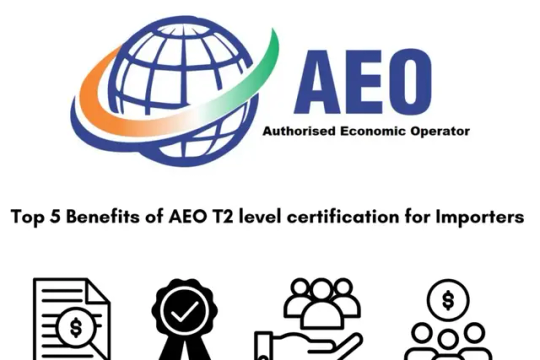
AEO Certification & Customs Licence Consultants in India | YKG Global
The Authorized Economic Operator (AEO) certification, a WCO initiative under the SAFE Framework, streamlines customs clearance and offers reduced inspections and other benefits. YKG Global provides expert AEO certification consultancy in India, handling applications, documentation, customs license registration, and compliance with DRI and Customs regulations. AEO status boosts trade credibility, speeds up cargo clearance, lowers customs guarantees, and ensures priority treatment. Whether a small business or large corporation, YKG Global offers tailored, hassle-free solutions for timely certification. Elevate your trade operations with our professional AEO services today!
#business#consulting#investing#success#foreign company#AEO#AEO certification#Authorized Economic Operator#AEO License
0 notes
Text
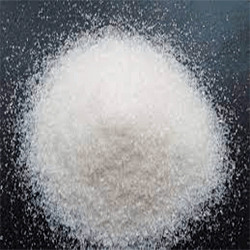

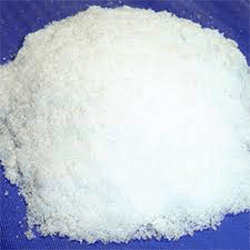
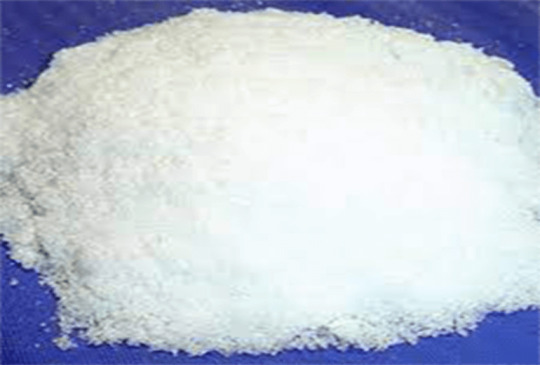
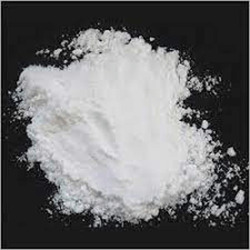
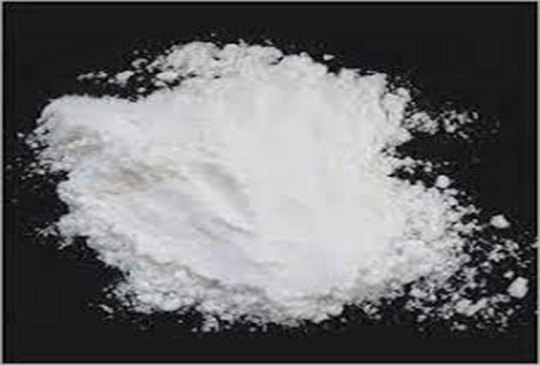
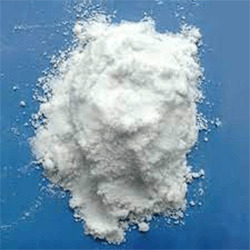
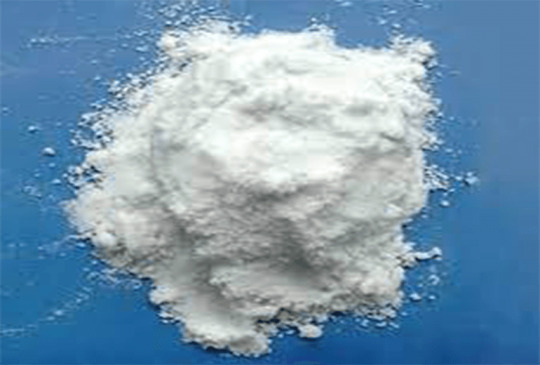
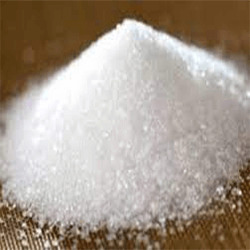


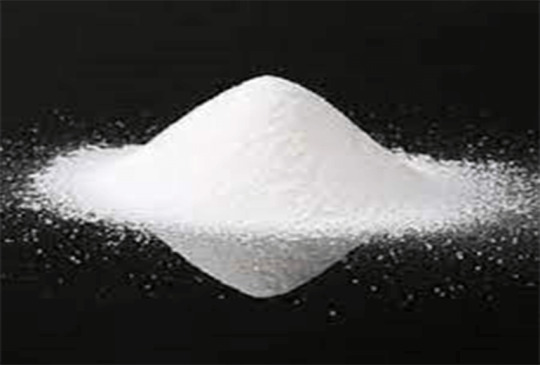
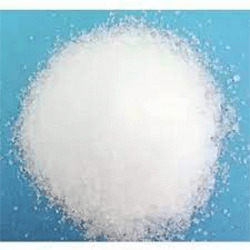
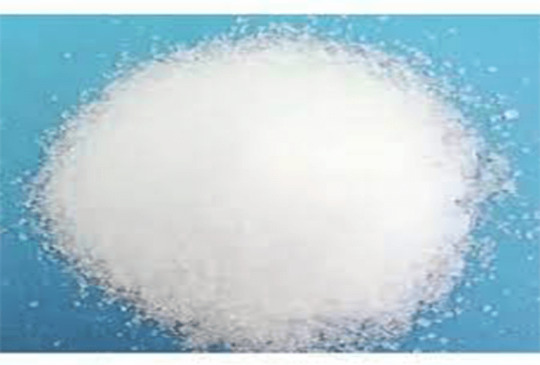

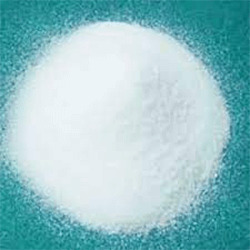

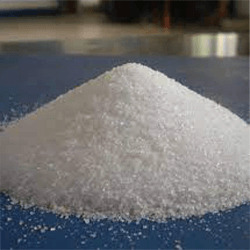
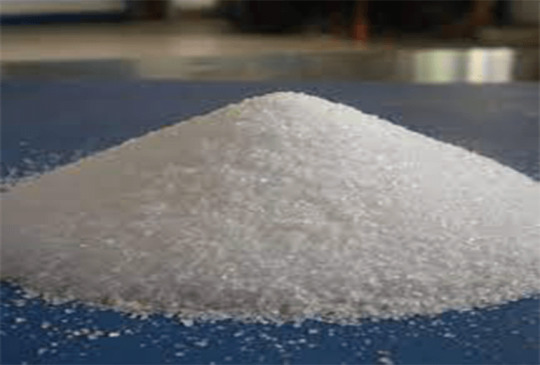
Welcome to Anmol Chemicals, your trusted source for high-quality Specialty Chemicals, Pharmaceutical Excipients, Food Grade Chemicals, and more. Established in 1976, we take pride in being a pioneer manufacturer in India.
Our Product Range: At Anmol Chemicals, we offer a comprehensive range of materials compliant with IP, BP, EP, USP, NF, Ph. Eur., JP, FCC, and Food Grade standards. Our commitment to quality is reflected in our adherence to the latest monographs, ensuring that you receive top-notch products at the best prices.
Global Presence: With manufacturing facilities strategically located across Western India, representatives in Houston, Chicago, USA, and Dubai, UAE, and toll manufacturing units worldwide, we cater to your chemical needs on a global scale.
Diverse Capabilities: Our diverse manufacturing capabilities include Bulk Drugs/API, Excipients, Pharmaceuticals (IP BP USP NF Ph Eur EP JP), Specialty Chemicals (Pure/Reagent), and Mineral Fortifiers (FCC). Rest assured, our FDA-approved facility adheres to international standards such as GLP, cGMP, ISO, FSSC, Kosher, HALAL, and more.
Customization and Compliance: We understand that every project is unique. That's why we offer customization options for particle size, shape, and bulk density. All our products undergo rigorous analysis to meet the highest industry standards.
Quality Assurance: Anmol Chemicals follows WHO Good Manufacturing Practices and Good Laboratory Practices. As a government-recognized STAR Export House and "Authorised Economic Operator (AEO)" per Indian Customs, we ensure the utmost quality and compliance in every batch.
Global Certifications: Our certifications include ISO9001, ISO14001, ISO/IEC 17025, ISO22000, ISO45001, FSSAI, COPP, and WHO-GMP. We also provide Written Confirmation (WC) upon request.
Whether you require materials for laboratory trials or plant-scale jobs, Anmol Chemicals is your reliable partner. Contact us to experience excellence in chemical manufacturing and supply.
0 notes
Text
Exporting goods from India includes different traditions compliances to guarantee smooth and legitimate global exchange exchanges. Understanding and complying with these guidelines is urgent for exporters to keep away from deferrals, punishments, and different difficulties.
This article frames a portion of the essential traditions compliances that exporters should know about while transportation goods from India. 1) Obtaining an Importer Exporter Code (IEC): Prior to taking part in any product exercises, an exporter should get an IEC from the Directorate General of Foreign Trade (DGFT). This unique 10-digit code is compulsory for all product exchanges and fills in as an identification number for the exporter. 2) Classification of Goods: Appropriately grouping products under the Harmonized System (HS) is essential for deciding material obligations and assessments. Exporters need to precisely decide the right HS code for their items, which helps customs specialists order and evaluate the merchandise accurately. 3) Customs Valuation: The worth of products announced for trade not entirely settled according to the traditions valuation rules. The exchange worth of the products, adapted to explicit components, is by and large the reason for customs valuation. 4) Arrangement of Delivery Documents: Exporters should plan different records, including the business receipt, pressing rundown, bill of replenishing/aviation route charge, declaration of beginning, and some other archives expected by the bringing in country. Exact and finish documentation is fundamental to guarantee a consistent product process. 5) Export Declaration: Exporters are expected to document transporting bills or bills of commodity electronically with the traditions specialists. 6) Export Obligations and Taxes: Contingent upon the idea of the products and objective nation, trade obligations, charges, tax might be applicable. Exporters ought to know about any exclusions or concessions accessible and guarantee consistence with instalment prerequisites. 7) Customs Clearance: Products expected for trade should go through customs freedom methods. Exporters can decide to clear traditions through the Electronic Data Interchange (EDI) framework or with the assistance of a traditions clearing specialist. 8) Port Clearance and Inspection: A few products might require investigation by important specialists before shipment. Exporters ought to guarantee consistence with any pre-shipment examination necessities and get important clearances from the individual organizations. 9) Export Documentation Maintenance: Exporters are expected to hold duplicates of all commodity related reports, including delivering bills, solicitations, and correspondence, for at least a long time from the date of shipment. 10) Reporting to RBI: Exporters should report their commodity exchanges to the Reserve Bank of India (RBI) through the Export Data Processing and Monitoring System (EDPMS). 11) Consistence with Export Prohibitions and Limitations: Certain products are likely to trade preclusions, limitations, or permitting necessities. Exporters ought to guarantee that their items follow these guidelines to stay away from legitimate issues. 12) AEO Certification: Exporters can consider getting Authorized Economic Operator (AEO) certificate, a program that offers different advantages, including facilitated traditions leeway and decreased examination. 13) Advance Approval Plan: Exporters can exploit the Development Approval Plan to import natural substances obligation free in the event that they focus on trading the completed items inside a predefined time span. 14) GST and Export: Goods and Services Tax (GST) suggestions on products ought to be perceived, including the accessibility of zero-evaluated supplies and discount instruments for input tax credits. 15) Anti-Money Laundering (AML) and Know Your Client (KYC) Standards: Exporters should follow AML and KYC standards while participating in worldwide exchange exchanges to forestall tax evasion and guarantee the authenticity of exchange accomplices.
Exporters in India ought to investigate an overview catch of customs compliances to ensure powerful and legitimate or legal ware tasks. Complying with these guidelines works with smooth exchange as well as helps fabricate a standing for dependability and consistence in the worldwide market. Exporters ought to remain refreshed with the most recent traditions rules and look for proficient help when expected to guarantee a problem free commodity process. Authored By; Adv. Anant Sharma & Anushi Choudhary
#BEST LEGAL ADVICE FOR LOGISTICS COMPANIES IN DELHI#BEST LEGAL ADVICE FOR LOGISTICS COMPANIES IN DELHI NCR#BEST LEGAL ADVICE FOR LOGISTICS COMPANIES IN GURUGRAM#BEST LEGAL ADVICE FOR LOGISTICS COMPANIES IN INDIA#BEST LEGAL ADVICE FOR LOGISTICS COMPANIES IN NOIDA#TOP LEGAL SERVICES FOR LOGISTICS COMPANIES IN DELHI NCR#TOP LEGAL SERVICES FOR LOGISTICS COMPANIES IN GURUGRAM#TOP LEGAL SERVICES FOR LOGISTICS COMPANIES IN INDIA#TOP LEGAL SERVICES FOR LOGISTICS COMPANIES IN NOIDA
0 notes
Text
AVI Global Plast becomes AEO-T2 Certified
As a trusted manufacturer of rigid films and thermoformed packaging in India, AVI Global Plast has recently earned the Authorized Economic Operator (AEO) T2 certification from the Central Board of Indirect Taxes and Customs, Ministry of Finance, Government of India. This certification recognizes our company’s commitment to maintaining security and compliance with international supply chains, following the World Customs Organization’s (WCO’s) SAFE Framework of Standards.
With the AEO-T2 certificate, AVI can now pass on several benefits to its import and export clientele, including:
A higher level of facilitation in the clearance of consignments
Priority treatment for container scanning
Priority processing of bills of entry or shipping
The facility of self-sealing export goods
Onsite post-clearance audit only once in three years
Trade facilitation with foreign customs administrations
A dedicated client relationship manager
0 notes
Link
AEO Registration - Fee, Process, Eligibility & Documents Required. The AEO Certification enables Customs administration to identify the safe and compliant business.
0 notes
Link
Those who have obtained the AEO-T2 certificate will have their consignments imported and exported with greater ease. The customs officers' inspection and scrutiny of documents will be waived at the time of seal. Furthermore, the consignment will be given free of charge or allowed to export without inspection. If the AEO-T2 certificate holder's container is chosen for scanning, it will be scanned with front-line priority.
0 notes
Text

The AEO is the Status certification that provides international recognition to a business entity involved in the International supply chain; it certifies an entity as a secure and reliable trade partner. There are four AEO Tier introduced under the AEO Programme team. AEO T1, T2, and T3 for the importer and exporter, and AEO LO for logistic providers. If you are searching for AEO Certification in India you can contact us at +91 88601-90008 or can visit our website at AEO Certification in India
Visit at: - https://www.mbgcorp.com/in/aeo-programme/
0 notes
Text
How to Choose the Right Logistics Service in India
The logistics sector in India is the backbone of the economy, facilitating the seamless movement of goods and services across the nation. With the rapid growth of e-commerce, manufacturing, and retail sectors, the demand for efficient logistics services has skyrocketed. Whether you are a small business owner or a large corporation, selecting the right logistics partner is crucial for operational efficiency and customer satisfaction. This guide provides a comprehensive roadmap for choosing the best logistics service in India.
Understanding the Indian Logistics Landscape
India's logistics industry is vast and diverse, encompassing transportation, warehousing, freight forwarding, and supply chain management. Key factors influencing the sector include:
Geographical Diversity: India’s varied terrain, from mountains to plains, requires adaptable logistics solutions.
Government Policies: Initiatives like the Goods and Services Tax (GST) and the Make in India campaign have streamlined operations but also introduced compliance requirements.
Technological Integration: Digital platforms and automation are transforming the logistics industry, offering better tracking and efficiency.
Key Factors to Consider When Choosing a Logistics Service
1. Type of Logistics Service Required
Understanding your specific logistics needs is the first step:
Transportation Services: For businesses focusing on the movement of goods.
Warehousing Solutions: Ideal for storing inventory before distribution.
Supply Chain Management: Comprehensive solutions for managing the flow of goods from supplier to customer.
Freight Forwarding: For international shipping and customs clearance.
Evaluate whether the logistics provider specializes in your required service and industry.
2. Experience and Expertise
A logistics company with a proven track record in your industry can better understand your unique challenges. Check for:
Years of experience.
Client testimonials and case studies.
Awards or certifications indicating industry recognition.
3. Coverage and Network
India’s size and diversity demand a logistics provider with a robust network. Ensure the provider offers:
Pan-India coverage.
Regional expertise in specific states or areas.
International shipping capabilities if required.
4. Technology and Tracking
Modern logistics relies heavily on technology for efficiency and transparency. Look for:
Real-time tracking capabilities.
Integration with your existing systems (ERP, CRM, etc.).
Advanced analytics for predictive insights.
5. Cost-Effectiveness
While cost is a significant factor, it should not compromise quality. Consider:
Transparent pricing models.
Value-added services like packaging, insurance, or expedited shipping.
Volume-based discounts or contracts for long-term partnerships.
6. Compliance and Certifications
Ensure the logistics provider adheres to regulatory standards, including:
GST compliance.
Safety certifications for hazardous goods.
International certifications for export/import services, like ISO or AEO.
7. Customer Service and Communication
Effective communication is key to resolving issues and ensuring smooth operations. Assess:
Availability of a dedicated account manager.
Responsiveness to queries and complaints.
Multilingual support if operating in diverse regions.
8. Scalability and Flexibility
Choose a logistics partner capable of scaling their services as your business grows. Evaluate:
Ability to handle increased volumes during peak seasons.
Flexibility to adapt to changes in your supply chain.
9. Sustainability Practices
With growing environmental concerns, many businesses prioritize eco-friendly practices. Check for:
Use of electric vehicles or fuel-efficient fleets.
Green warehousing solutions.
Waste management and recycling initiatives.
Steps to Evaluate a Logistics Provider
1. Conduct Thorough Research
Start by creating a list of potential logistics providers. Use online reviews, industry forums, and professional networks for recommendations. Shortlist companies based on their expertise, reputation, and service offerings.
2. Request Proposals and Compare
Reach out to shortlisted providers with a detailed request for proposal (RFP). Include specifics like:
Type of goods and average volume.
Preferred routes and delivery timelines.
Any special requirements (e.g., temperature control for perishables).
Compare proposals based on cost, service scope, and added benefits.
3. Visit Facilities
If feasible, visit the logistics provider’s warehouses or offices. Assess:
Storage conditions and safety measures.
Technology and equipment used.
Overall organization and professionalism.
4. Test the Service
Before committing to a long-term contract, consider a trial period. Monitor:
Timeliness of deliveries.
Quality of customer service.
Accuracy of tracking and reporting.
Challenges in the Indian Logistics Sector
While India’s logistics industry has seen significant advancements, it still faces challenges:
Infrastructure Gaps: Inadequate roadways and ports in certain regions.
Regulatory Hurdles: Complex compliance requirements for cross-border trade.
Fragmentation: Dominance of small, unorganized players in rural areas.
Choosing a logistics provider adept at navigating these challenges ensures smoother operations.
Popular Logistics Companies in India
Some leading players in the Indian logistics sector include:
Blue Dart: Renowned for express delivery and courier services.
DHL Supply Chain: Specializes in supply chain management.
Gati: Offers comprehensive logistics and warehousing solutions.
Delhivery: A tech-driven company excelling in e-commerce logistics.
Allcargo Logistics: Expertise in multimodal transport and international freight forwarding.
Conclusion
Choosing the right logistics service in India requires a thorough understanding of your business needs and careful evaluation of potential partners. Consider factors like experience, network coverage, technology, and cost-effectiveness. A reliable logistics provider not only enhances operational efficiency but also strengthens your brand’s reputation by ensuring timely and safe delivery of goods. With the right partner, you can focus on growing your business while leaving the complexities of logistics management to the experts.
0 notes
Text
ASC Group provides expert AEO Registration Consultant services, helping businesses navigate the process, ensure compliance, and streamline import/export operations under international trade regulations.
0 notes
Text
AEO Registration Consultant, through ASC Group, ensures smooth trade operations with heightened security and compliance. The license, issued by the CBIC, will enhance credence in global trade while custom procedures shall be streamlined. Get in touch with ASC Group to get effective AEO Registration assistance today!
#AEO Certification#AEO Certificate#AEO Registration#AEO Registration process#AEO Registration Consultant
0 notes